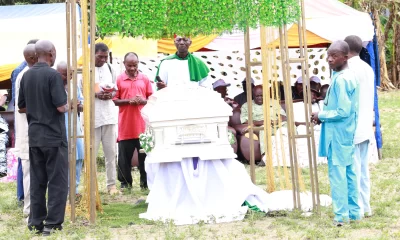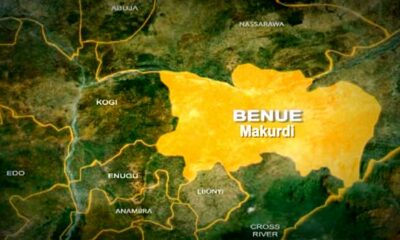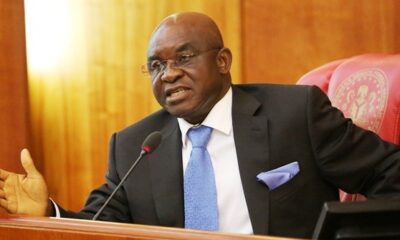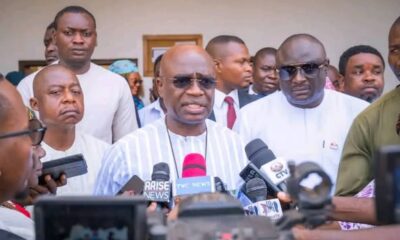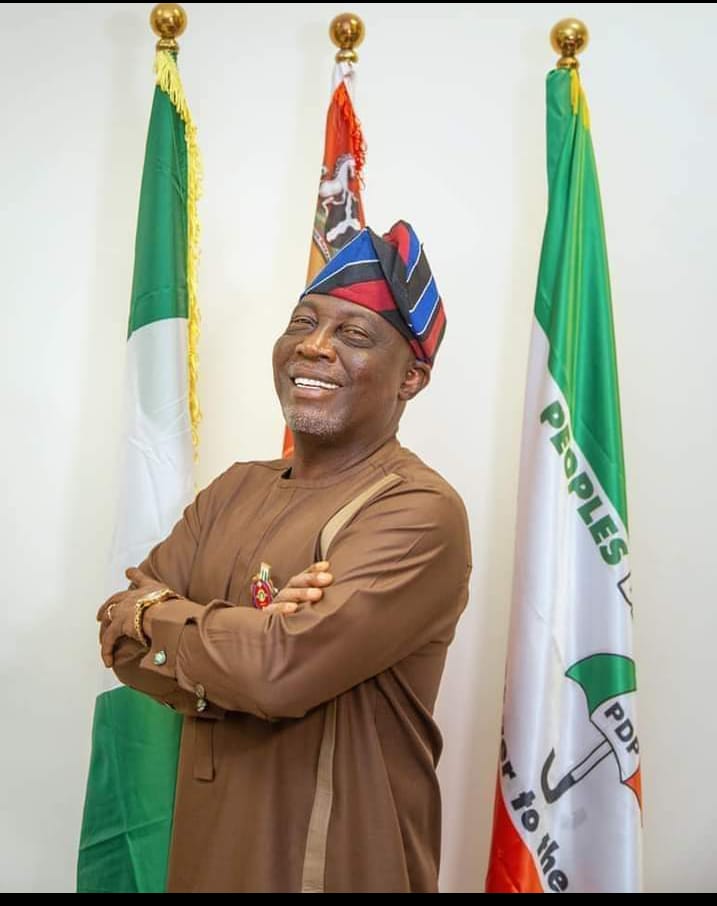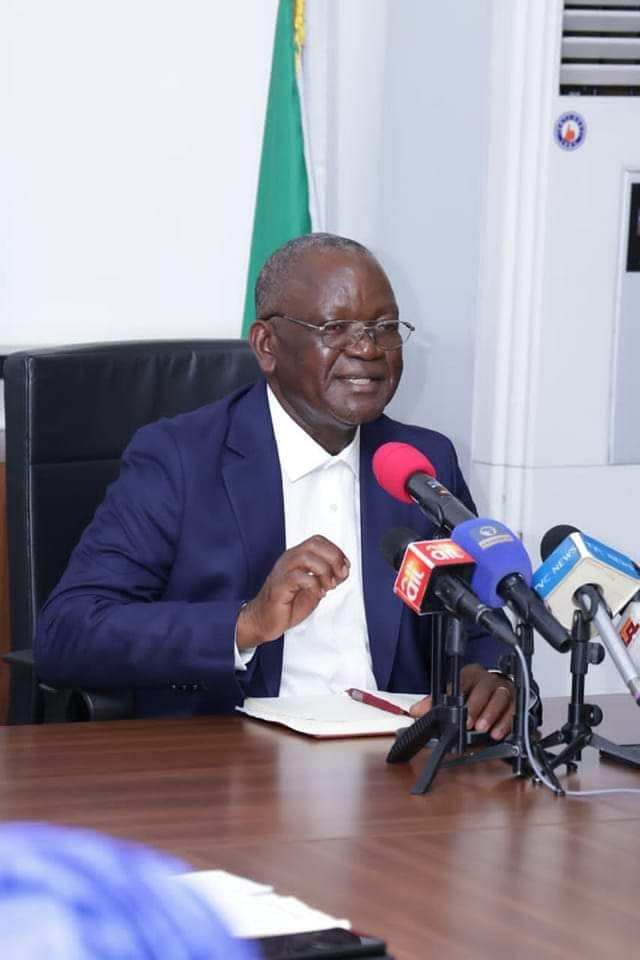Benue news
Gov Alia denies sponsoring protest against Benue Chief Judge, Ikpembese
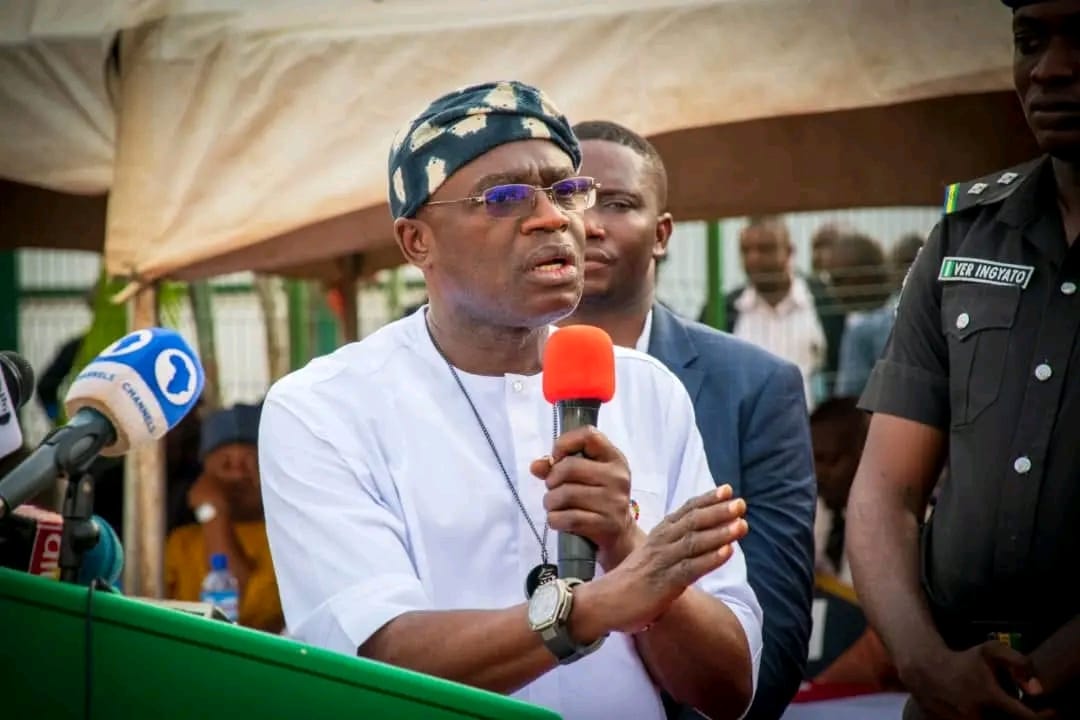
Benue State Governor Hyacinth Alia has distanced himself from the protest against the state’s Chief Judge, Justice Maurice Ikpembese, over the relocation of the Benue Local Government Election Petitions Tribunal from Benue to Abuja.
On Monday, hundreds of protesters from Benue marched through Abuja, from the National Assembly to the Supreme Court, condemning the Chief Judge’s decision. Justice Ikpembese had ordered the relocation of the tribunal on March 5, citing security concerns. The tribunal is handling disputes from the Benue State Local Government elections conducted on October 5, 2024.
Reports indicate that 93 petitioners, including candidates from the All Progressives Congress (APC) and the Peoples Democratic Party (PDP), have filed cases at the tribunal since October 17, 2024.
The Benue State Government, through Attorney General and Commissioner for Justice and Public Order, Mr. Fidelis Mnyim, questioned the Chief Judge’s unilateral decision, emphasizing that neither the governor nor his office had been officially notified.
However, Governor Alia’s Chief Press Secretary, Kula Tersoo, in an interview with The PUNCH on Monday, denied any government involvement in the protest.
“How can the government sponsor a protest when people listen to the news and read newspapers? They are enlightened and can see how court cases have turned political. The government stands to gain nothing from sponsoring a protest; instead, it remains focused on infrastructure development,” Tersoo stated.
Speaking on the matter, the Chairman of the Nigerian Bar Association (NBA), Makurdi branch, Terna Yaji, lamented the politicization of the tribunal case. He criticized conflicting rulings from the Federal High Court in Makurdi and the High Court in Abuja, stating that such contradictions created uncertainty.
“The Federal High Court in Makurdi and the High Court in Abuja are issuing conflicting orders, which creates uncertainty. The latest order should take precedence. It is unfortunate that the judiciary has become entangled in politics,” Yaji said.
The controversy follows an earlier attempt by the Benue State Government to remove the Chief Judge over allegations of misconduct and corruption. The Benue State House of Assembly, acting on a petition from Governor Alia, recommended Justice Ikpembese’s removal, but the move was resisted by the National Judicial Council (NJC) and the NBA.
On Monday, protesters carrying placards condemned the Chief Judge’s decision to relocate the tribunal to Abuja.
During the demonstration, the convener of the group, Igwe Ude-Umanta, accused Justice Ikpembese of unilaterally granting a waiver to petitioners, violating the constitutional requirement for a security deposit. He also blamed Justice M.M. Adamu of the FCT High Court for issuing an order compelling the tribunal to sit in Abuja, despite a previous ruling barring the tribunal from sitting outside Benue State.
The protesters called on Chief Justice of Nigeria, Justice Kudirat Kekere-Ekun, to intervene and rid the judiciary of corrupt judges. They also urged President Bola Tinubu to take action to resolve the crisis.
“Our democracy is in clear danger, and Justice Kudirat Kekere-Ekun must save it. We are here to submit a petition against Justices Maurice Ikpembese and M.M. Adamu, who have turned justice into injustice,” Ude-Umanta declared.
He further argued that some of the petitioners at the tribunal did not even participate in the election process.
Justice Ikpembese had initially ordered the relocation of the tribunal from Makurdi to the Nigerian Bar Association (NBA) House in Abuja, citing security threats. However, a Federal High Court sitting in Makurdi later restrained the tribunal from holding sessions outside Benue State.
In response, the APC approached the FCT High Court in Abuja, seeking to reinstate the Chief Judge’s earlier directive. On Friday, Justice Adamu ruled in favor of the relocation, ordering the tribunal to sit in Abuja and restraining it from operating in Benue.
The legal battle continues as stakeholders await further judicial and political developments.


